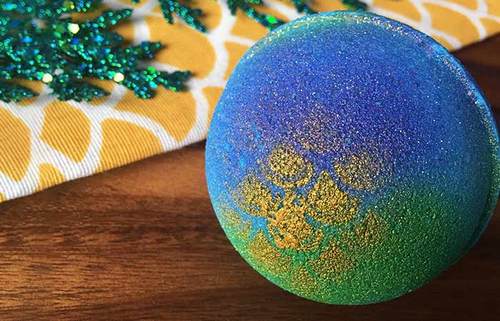How long does it take for a woman to get pregnant? Science says that the best time to get between the sheets for baby-making is during one’s most fertile days; the possibility of conceiving is at its peak during the fertile window period.
What Is A Fertile Window?
This is known as the most fertile time or the fertile days of a woman’s menstrual cycle when pregnancy is possible. And the fertility window varies from one woman to another; it’s not the same for all women.
In order to strike the baby-making bull’s eye, you need to be aware of the different phases throughout your cycle, in order to increase your chances of landing in the pregnancy world.

When You Are On Your Period
What exactly is menstruation? It’s basically the shedding of the inner membrane of the uterus-the endometrium that happens once a month. And the duration of this for most of the women is anywhere between 3-7 days.
The levels of estrogen and progesterone, the female hormones, are on a rise by the third day of your periods. And this is when these hormones begin to rebuild the endometrium. And by your fourth day, the follicle ripening (development and maturation of the ovarian follicle) begins to upscale. It simply means that your ovaries have begun to prepare eggs for release. This is basically known as the ovulation period wherein your man’s sperm will have the minimum or the least number of eggs to work with.

And the nature of ovulation differs from woman to woman. We surely do keep a track of the dates when it comes to our periods, right? If you are one of those who never seem to remember their dates, you need to get a period calculator in your phone. We should inculcate the habit of keeping a track of our ovulation time too with the help of a basal body temperature chart or an ovulation predictor kit.
Chances of conceiving:
Are you still wondering if you could get pregnant when you are on your period? Let’s spell it out for you – definitely not! But, it definitely isn’t a sin at all to get romping between the sheets with your loved man (as long as you are comfortable with it).
The Pre-Ovulation Phase
Doctors advise that after the lady is done with her period, it’s important to make love two to three times a week, in order to cover up the window of pre-ovulation. And we’ll tell you why-by day seven you will observe a vaginal discharge which is a little springy in nature by touch.

And after a few days have passed by, this will turn into a white and creamy substance (a cue of the return of your fertility). This signifies that the ovulation phase is on its way and your cervical mucus has a perfect environment for your man’s sperms.
Another important point to make note of is that one can get pregnant even after the period is over. This happens because a sperm manages to stay alive up to 5 whole days if trapped in the fertile cervical mucus.
Chances of conceiving:
Good! But, you’ll have to step up your baby-making routine and try hard here.
The Ovulation Phase
It’s the “most happening” phase for conception. Irrespective of how long your period’s duration is, ovulation is guaranteed to start 14 days before your next period. The body temperature is known to rise by half a degree during this phase. But, how will one be able to determine this?

You can use an ovulation predictor kit. It will tell you if you are ovulating or not. When it turns positive, just go ahead and make love ( but be quick to do so within the next 24-36 hours)!
Chances of conceiving:
High! (if you have made love within the immediate 36 hours)
Eggs which are released have a lifespan of no longer than 12 hours. Therefore, it’s best for your man’s swimmers to meet your eggs within a time of 4-6 hours of its release.
The Post-Ovulation Phase
Better known as the luteal phase among the doctors, it’s the final lap of your menstrual cycle (the duration is 12-16days). It is in this phase that the progesterone levels rise up signaling that no more of the eggs need to be released by the ovaries now. In fact, during this time the cervical mucus dries up and creates a barrier to prevent any sperm from entering the uterus. It’s after ovulation that the eggs travel back to the uterus (takes about six days minimum). And even if one reaches the endometrium the HCG (human chorionic gonadotropin) level rises-the hormone which can be measured with the help of home pregnancy kits.

Chances of conceiving:
Low! As the eggs have already been released, the swimmers won’t be able to do anything now. But, hey! There’s no harm in making love with your partner when you’re in the mood, right!
How Long Will It Take To Get Pregnant?
Don’t fret with tension if you haven’t got pregnant and it’s already time for your cycle to start again. Maybe you’re yet to figure out how your menstrual days work or maybe your man’s swimmers didn’t do their magic yet. It’s not luck; it’s all a test of time. Learn to love and understand how your body and its parts actually work.
If you are planning to conceive, happy baby-making, guys! If not, let’s just be responsible adults.



